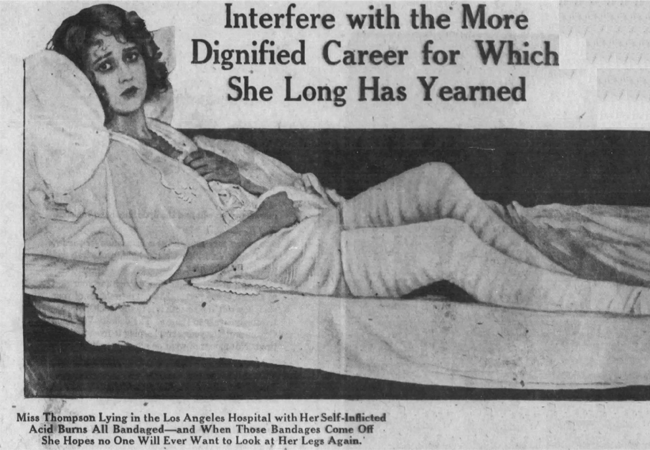It’s somewhat of a paradox that the Constitution of Australia does not allow our Federal politicians to have divided citizenship loyalties and yet our head of state can, writes history editor, Dr Glenn Davies.
THE COMMONWEALTH OF AUSTRALIA was established on 1 January 1901, following the passing of the Commonwealth of Australia Constitution Act by the United Kingdom Parliament.
The Constitution of Australia originated as an agreement under which the former colonies came together as states in a Federation and established, in the process, the form of the Federal government as well as setting out the basis for relations between the Commonwealth and the states.
One of the roles of the High Court is the interpretation of the Australian Constitution. The High Court does this only when a specific case is before the court requiring a ruling on a provision of the Constitution. It does not give advisory opinions. The need for interpretation of the Constitution is necessary not because of disagreements over the meaning and application of particular provisions, but also because of developments that were not foreseen when the Constitution was written.
Through interpretation, the effect of the Constitution has been changed over the years.
At the directions hearing on Thursday, 25 August 2017, the High Court announced it will hear the citizenships cases under Section 44(i) of Deputy Prime Minister Barnaby Joyce, Senators Matt Canavan and Malcolm Roberts and Greens former Senators Larissa Waters and Scott Ludlam on 10, 11 and 12 October 2017, in Canberra. This will ensure the citizenship crisis that has engulfed Federal Parliament will drag on for months.
It appears Barnaby Joyce’s case will be based on whether or not he knew he was a citizen of New Zealand. The cases of Matt Canavan and Larissa Waters are similar because they did not know they were citizens of another country, although Waters resigned from her position after learning she held Canadian citizenship. Canavan’s case will argue that "citizenship by descent" should not apply under Section 44(i) of the Constitution because that would disqualify a huge proportion of the population.
Section 44(i) states that a person is disqualified from running for office if they are:
' ... under any acknowledgment of allegiance, obedience, or adherence to a foreign power, or is a subject or a citizen or entitled to the rights or privileges of a subject or a citizen of a foreign power.'
Senator Canavan’s defence argument will be that data from the Australian Bureau of Statistics (ABS) will show this situation is "ridiculous" that Section 44(i) “should exclude citizenship by descent”.
Senator Roberts’ case is expected to revolve around the steps he took to renounce his citizenship. The High Court determined in 1991 that a person would remain eligible to stand if they took “all reasonable steps” to renounce the citizenship of a foreign power.
In the case of Senator Ludlam, though, there is no disagreement with his statement that he is ineligible to be elected to the Australian Federal Parliament.
Deputy National Party leader Fiona Nash and Senator Nick Xenophon have also both revealed they hold dual citizenship by descent. It is most likely they will be referred to the High Court when Federal Parliament returns on 4 September 2017. Chief Justice Susan Kiefel said it was likely the High Court will hear these cases on the same days as the other five citizenship cases.
The difference between citizen and subject has often been glibly said to be that a citizen has rights whereas a subject has privileges. A subject owes their allegiance to a sovereign and is governed by that sovereign’s laws, whereas a citizen owes allegiance to the community and is entitled to enjoy all its civil rights and protections. The difference between citizen and subject lies in where an individual's allegiance is placed: subjects to a sovereign and citizens to a state; to a republic.
On 26 January 1949, the legal concept of Australian citizenship was created with the enactment of the Nationality and Citizenship Act 1948. Before then, in common law, to be a British subject one simply had to be born in any territory under the sovereignty of the British Crown. From 1949 onwards, every person who was a British subject by virtue of a connection with the United Kingdom or one of her Crown colonies became a British citizen.
However, citizens of other Commonwealth countries retained the status of British subjects and were known by the term "Commonwealth citizen". From 1949 to 1982, a person born in England would have been a British subject and a citizen of the United Kingdom and Colonies, while someone born in Australia would have been a British subject and a citizen of Australia. During this time Australian passports had on the front ‘BRITISH SUBJECT Australian Citizen’.
The status of "British subject" was retained in Australian law until Part II of the Nationality and Citizenship Act 1948 was removed by the Australian Citizenship Amendment Act 1984, which came into force on 1 May 1987. Australia severed its final legal ties to Britain by enacting the Australia Acts of 1986. However, it must be said, we have yet to sever our final symbolic ties to Britain as represented by our head of state being the British monarch.
As a result, there are British subjects living permanently in Australia, who are not Australian citizens, who are eligible to vote in Federal elections and referendums. Under Section 93(1)(b)(ii) of the Commonwealth Electoral Act 1918, British subjects, who were enrolled for a federal electoral division in Australia immediately before 26 January 1984, are eligible to enrol and vote in Federal elections and referendums. Section 4 of the Referendum (Machinery Provisions) Act 1984 also provides that electors who are entitled to vote at an election are entitled to vote at a referendum.
As mentioned above, under Section 44 of the Australian Constitution, foreign citizens cannot hold office.
As Australian citizens were all considered British subjects between 1949 and 1984, then, were they all invalidly holding office? Does this mean that all legislation between 1949 and 1984 is actually invalid?
Prior to 1984, the eligibility to enrol and vote was based on a combination of British subject status and a minimum Australian residence qualification of six months. In 1981, the Federal Parliament passed legislative amendments changing the Federal franchise qualifications. It was the view of all political parties and governments, state and Federal, that Australian citizenship is the appropriate basis for the franchise. Parliaments in all states soon passed complementary legislation. When the franchise qualifications were changed to require Australian citizenship, it was considered unfair to disenfranchise British subjects who were already enrolled and entitled to vote. Consequently, British subjects who were already enrolled at the date of transition were able to retain their franchise.
An irony of all this is that the 1999 Republic Referendum was defeated by about 400,000 votes. It was subsequently shown that British subjects who arrived prior to the 1984 Australia Act constitute about 500,000 people and voted 4:1 against the republic. Therefore, if the vote was only for Australian citizens it may well have passed. The outcome was British subjects, predominately with British citizenship, who had not taken Australian citizenship, proved to be a massive voting block and prevented the will of Australian citizens.
There is a clear precedent for the consequence of holding dual citizenship. The High Court ruled in 1998 that One Nation’s Heather Hill had to relinquish her Senate seat when the High Court found British citizens to be ineligible to stand for election to Federal Parliament because they owe allegiance to a "foreign power" (Sue v Hill).
Deputy Prime Minister Barnaby Joyce has clearly stated he will not relinquish his responsibilities while awaiting an outcome from the High Court.
Section 46 of the Constitution states the penalty for sitting when disqualified:
'Until the Parliament otherwise provides, any person declared by this Constitution to be incapable of sitting as a senator or as a member of the House of Representatives shall, for every day on which he so sits, be liable to pay the sum of one hundred pounds to any person who sues for it in any court of competent jurisdiction.'
The Reserve Bank of Australia calculates 100 pounds in 1901 as equivalent to $14,757.13 in 2016. This is the amount Barnaby Joyce could be liable to pay for every day he stays in office since the understanding emerged of his infringement of the Australian Constitution — and this is multiplied by the number of people who may choose to sue him.
The Constitution of Australia has a special status — it cannot be changed in the same way as other laws can be changed and it is a supreme law — that is, it overrides other laws. The Federal Parliament can change ordinary laws, such as the Marriage Act, by passing amendment laws, but it can only initiate proposals for changes to the Constitution — the approval of the people of Australia is necessary for any change to the Constitution, just as the approval of the people of Australia was a step in the process of creating the Constitution in the first place.
Many proposals for constitutional change have been discussed over the years, but most have not got as far as a referendum or have been rejected at referendum. There have been 42 proposals to alter the Australian Constitution passed by the Federal Parliament and submitted to referendum, but only eight have been successful — the last in 1977.
Australia’s unique status as a nation with a high proportion of immigrants will be a key argument in the High Court case to resolve the dual citizenship fiasco engulfing Federal politics. This will be coupled with the “I didn’t know” defence and the “It’s not really very fair” argument.
It seems these High Court defence arguments are using Dennis Denuto’s still unchallenged “It’s the vibe of the thing”. It worked for Darryl and Dennis in The Castle, perhaps it will also work for them?
History editor Dr Glenn Davies is an Australian Republican Movement Queensland branch councillor. You can follow Dr Davies on Twitter @DrGlennDavies.

This work is licensed under a Creative Commons Attribution-NonCommercial-NoDerivs 3.0 Australia License
Monthly Donation
Single Donation
Be independent. Subscribe to IA for just $5.











